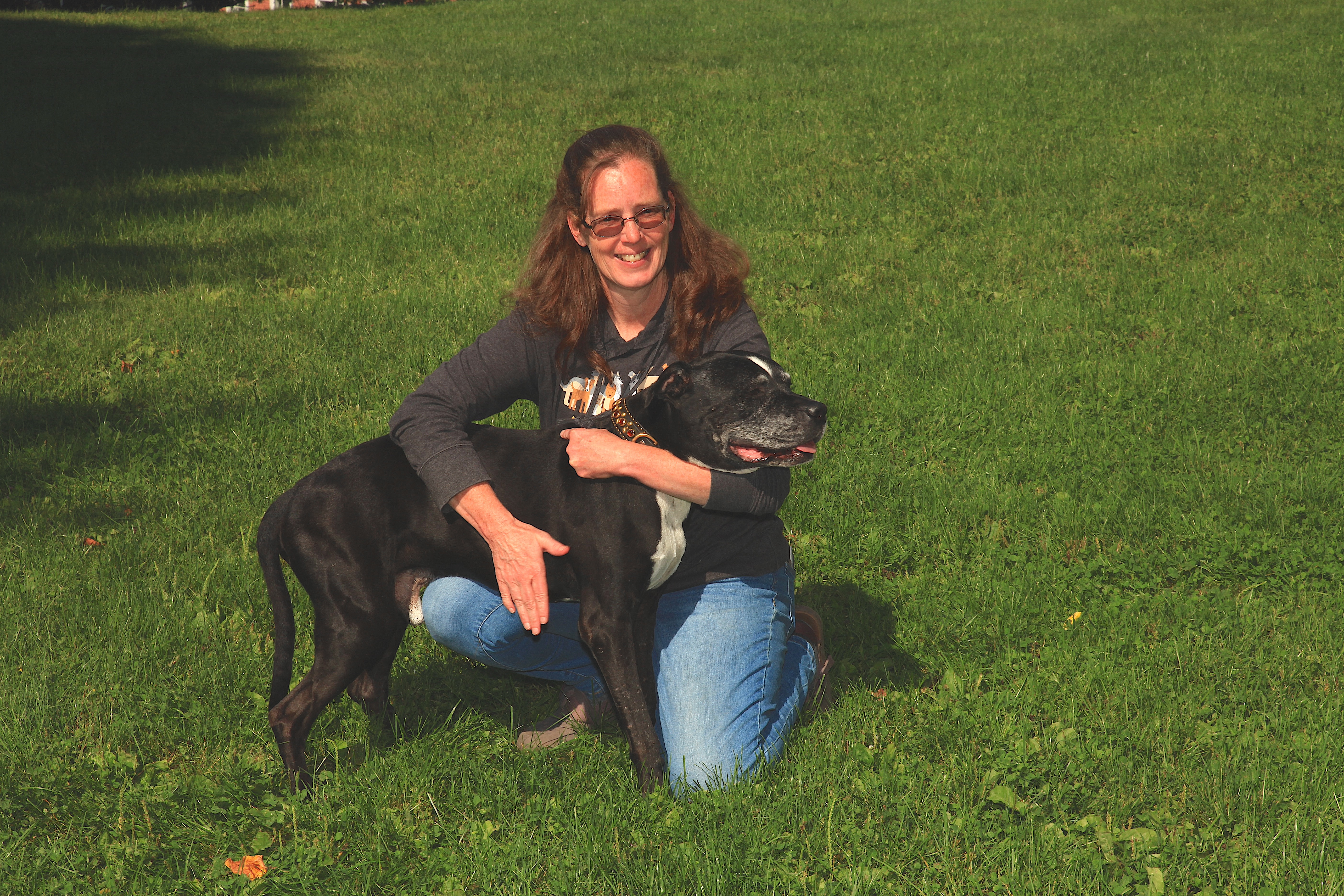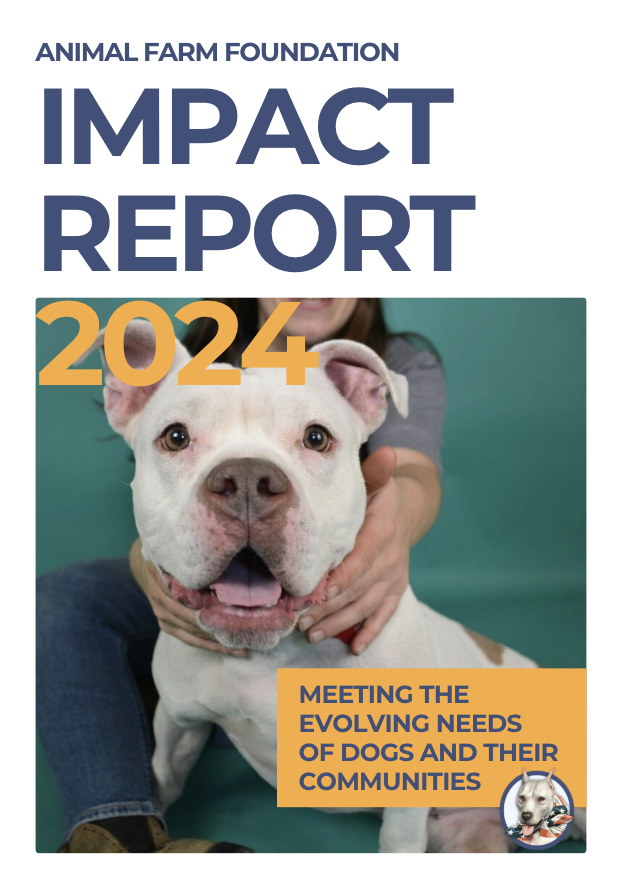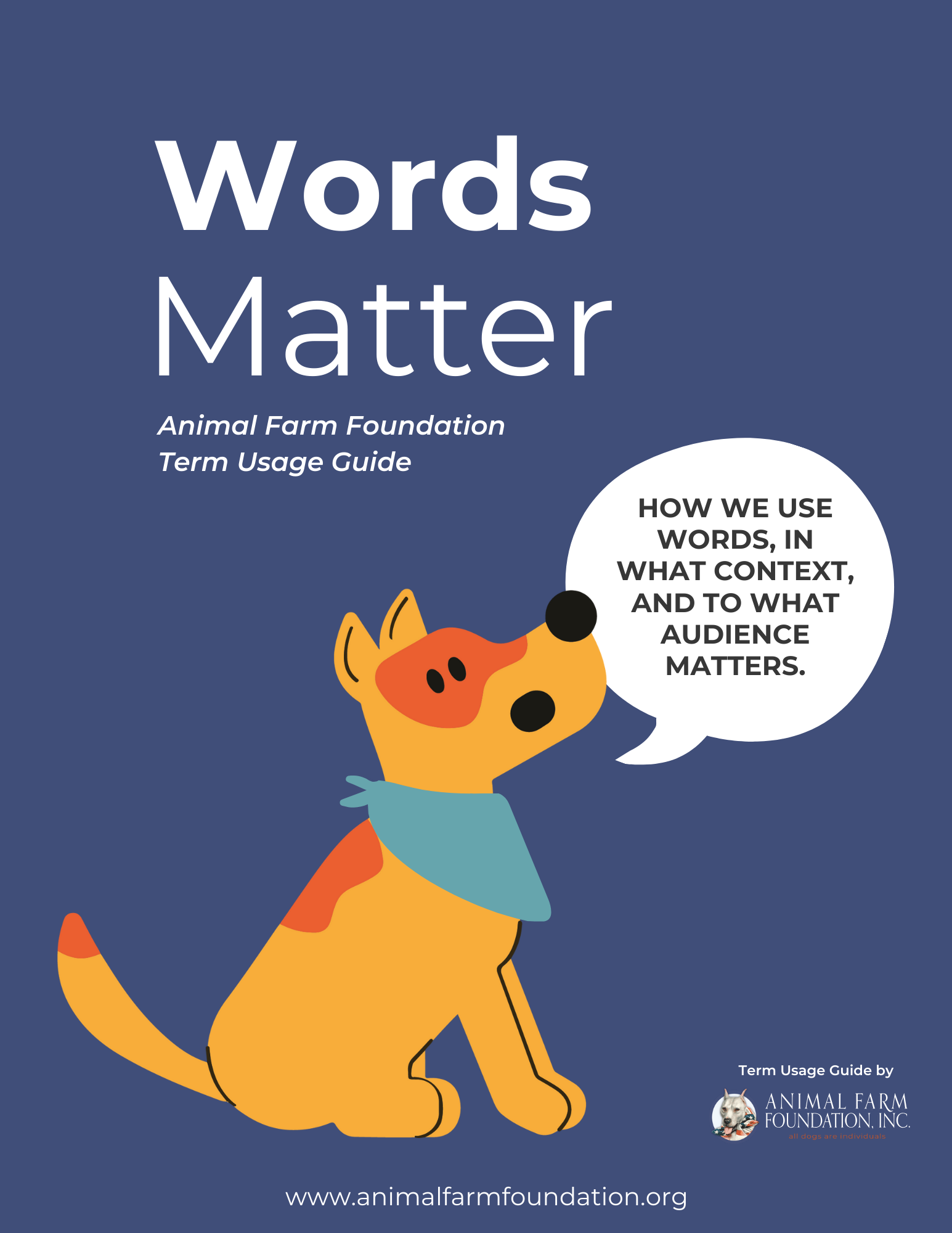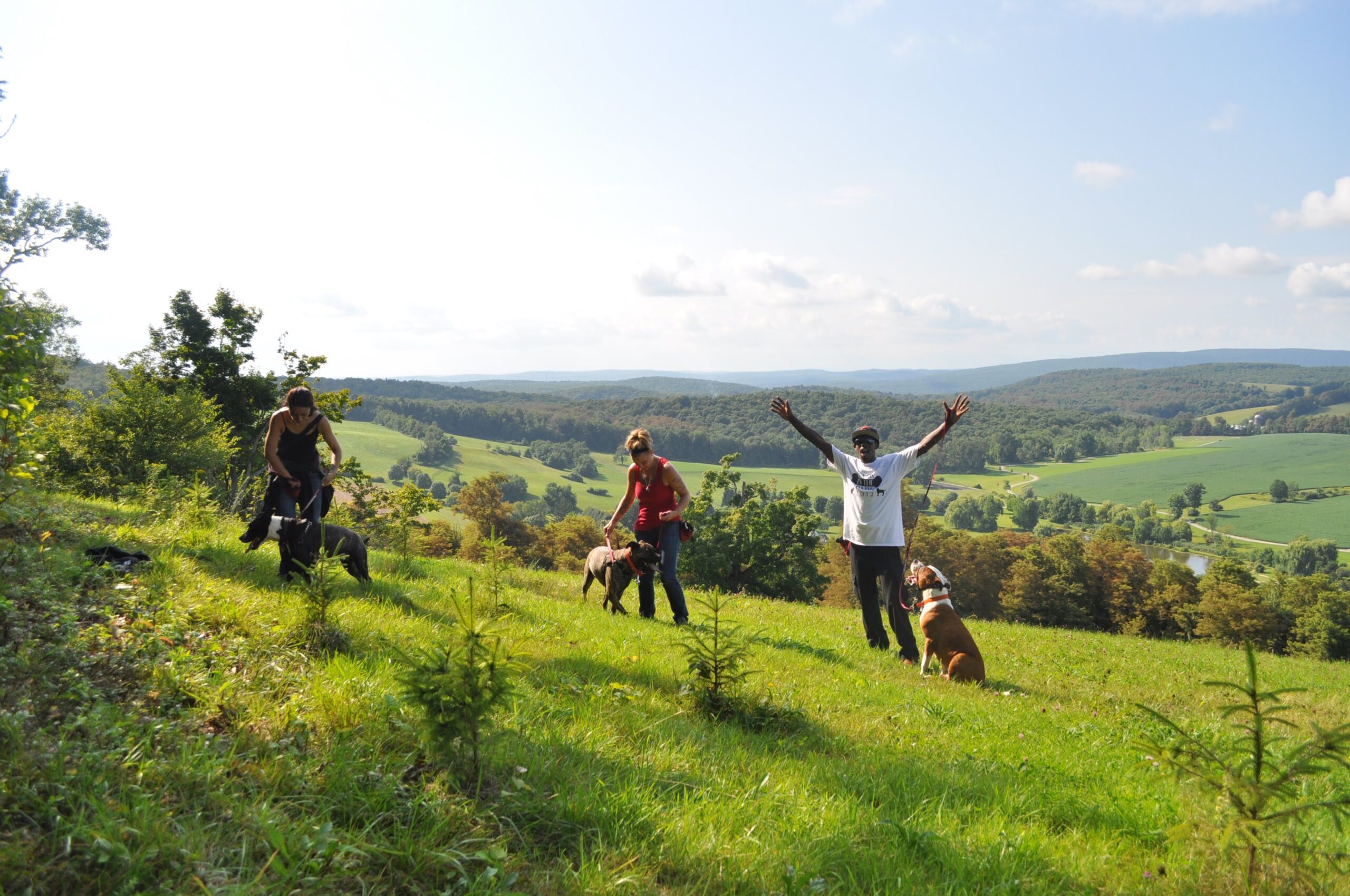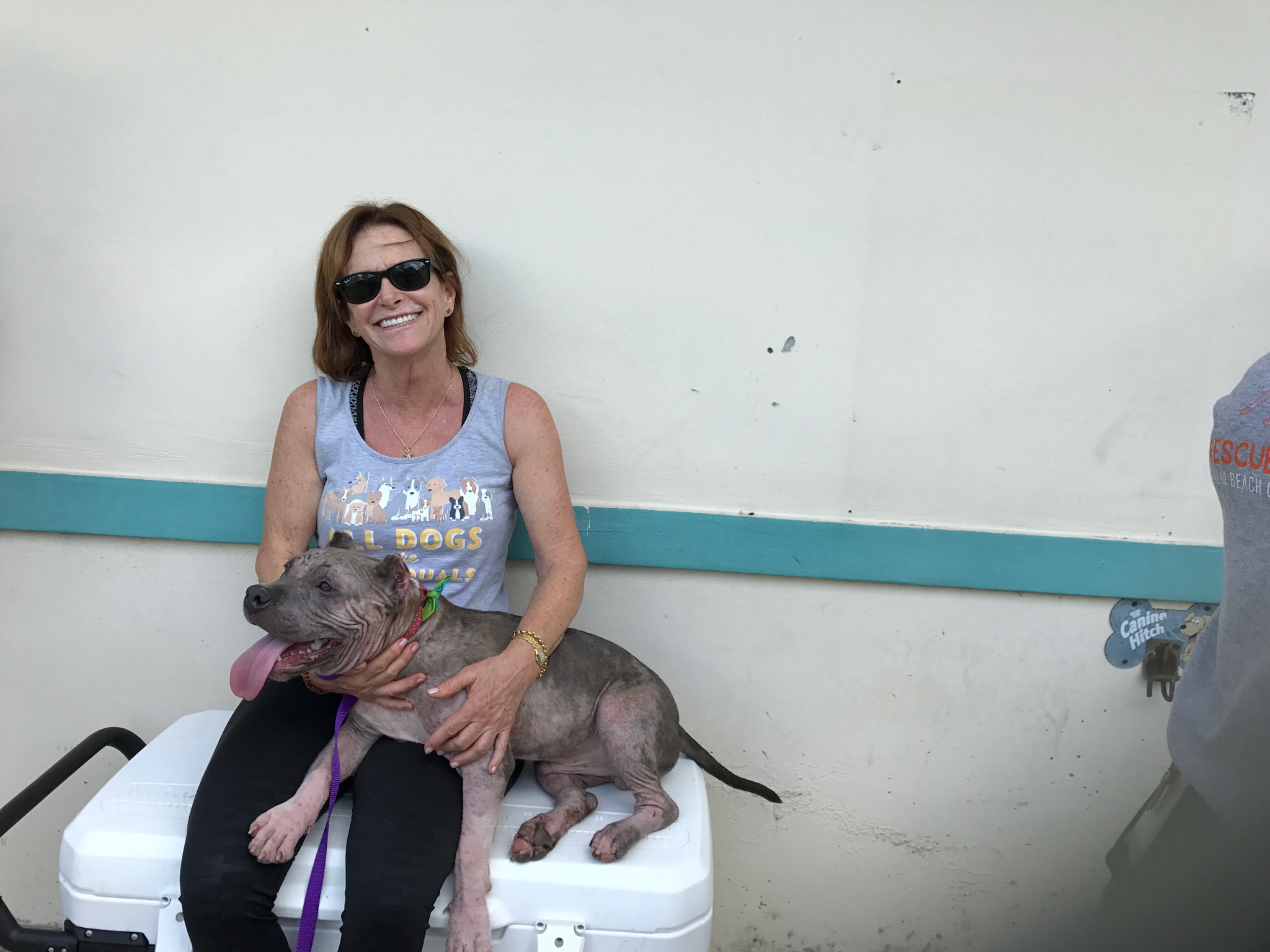Progress lies not in enhancing what is, but in advancing toward what will be. – Khalil Gibran
As today’s animal sheltering professionals increasingly focus on providing dogs with quality care and getting to know them as individuals – through standardized evaluations, volunteer notes and foster programs, play groups, enrichment, and more – it’s time to examine:
What role should breed – breed identification and breed labeling – play in today’s animal shelters?
Current research has helped us understand that focusing on breed is not an effective approach to successful, progressive animal sheltering. Too many dogs are mislabeled, too many assumptions are made based on behavior traits associated with a breed label, and too many dogs are unfairly penalized for the breed label they’re assigned.
The solution isn’t that we need to get better or work harder at identifying breeds or breed labeling the dogs. Rather, the next phase in the evolution of animal sheltering is to put the focus where it belongs: assessing all dogs as individuals, first and foremost.
Breed is just one part of any individual dog – as is their socialization, training, genetics, environment, etc. – but traits related to breed are not the whole dog. The whole dog is the individual. Breed traits are a just a possible slice of the pie. To go forward, we must focus on the whole dog.
It can be a challenge for all of us to think outside the breed box, but the research is clear: shelters need to stop wasting time and energy trying to get better at breed identification and get to know the dogs as individuals instead. In today’s animal sheltering world, it’s critical to the success of our work.
Changing old habits is always a challenge, so we’d like to address the questions and concerns of those working on behalf of the dogs. Here are our most frequently asked questions regarding breed and breed traits in animal shelters:
Isn’t it important to know a dog’s breed, so we can share their breed traits and then adopters will know what to expect? Aren’t breed traits just more information to share with adopters?
Breed traits most certainly exist. However, how breed traits present themselves in dogs, particularly in mixed breed dogs of unknown origins (the majority of dogs found in our shelter system), varies tremendously. Therefore, a guess at how a breed trait may or may not manifest itself in a dog is not nearly as reliable as the information shelters can gather by observing the dogs in their care. If you observe breed traits, share them with the adopter. If you don’t observe them, don’t assume they’re there.
Please note that breed traits don’t apply to mixed breed dogs. Mixed breed dogs are not any breed of dog at all. Pure breed dogs are bred from from closed gene pools. Mixed breed dogs are not from closed or coherent gene pools and cannot be considered a member of any breed. They have more in common genetically with ALL dogs, then any one breed in particular.
No matter what a dog’s breed or mix may be, when we give equal or more weight to breed traits, rather than focusing on what we’ve observed about a dog’s individual needs, we can hinder their chances at a successful match. Get to know the whole dog.
When dogs are improperly identified, do we cause problems for the adopters and/or the dogs? Will adopters think we’re trying pass off “pit bull” dogs as other breeds and stop trusting us?
We believe that honesty is the best policy. The overwhelming majority of dogs in shelters are mixed breed dogs (the ASPCA has reported that up to 75% of dogs are of mixed heritage). And research tells us that visual identification of mixed breed dogs is highly inaccurate. Unless you know what a dog’s breed mix is for sure – you know the parents or have paperwork – speculating about the possible breed mix is just a guess.
If you wish to be 100% completely honest with your adopters, tell them the truth: you aren’t sure what the breed mix might be. Most importantly, tell them the truth about the dog’s actual behavior based on your observations and evaluations. Remember, people are adopting a DOG, not a breed. How that dog behaves is the key to a good match for potential adopters.
If the adopters notice physical markings or certain behaviors that lead them to believe a dog might be a certain breed (for example: a black mark on the dog’s tongue has them guessing he might be a Chow mix), be honest in your response by acknowledging that it is a possibility. Here’s an example of how you might respond: “Yes, it is possible this dog might have some Chow in there, though we don’t know for sure. How do you feel about that? Would that be ok with your landlord?”
If you’re concerned about someone else (an insurance company, Animal Control, etc.) identifying the dog as a “pit bull”, let the adopters know this is a possibility and determine how that may affect them legally. Be aware of any potential breed restrictions in your community and give resources to educate your adopters about these realities.
Share what you know for sure and be clear about what’s a guess. They will appreciate your honesty.
Lots of the dogs we see have the characteristics of a “pit bull”, so shouldn’t they be identified as a pit bull or pit mix?
The only thing we recommend is being honest. If all you have is a visual inspection and no pedigree, then you’re guessing at a dog’s breed or breed mix when you choose to label them as “pit bulls”. You can label the dogs however you choose, but be careful not to make behavior predictions based on this guess and don’t imply that a label accurately indicates anything about a dog’s suitability for adoption or what kind of home he needs. The label doesn’t change the dog, but often the labels will change how we perceive the dog.
In the past, we used to think that we needed to get better at breed labeling dogs, but then Dr. Voith’s research showed us that we cannot get better at it. And Dr. Marder and Janis Bradley taught us that there is behavior variability within each breed, and even more among breed mixes, so that we cannot possibly predict a dog’s behavior based on breed alone. Each dog is an individual. Help adopters to see past labels and get to know the dog’s actual pet qualities.
Should we DNA test the dogs in our shelter to find out?
No, we do not recommend that shelters give their dogs DNA tests to determine its breed or breed mix. Dog behavior is a complex mix of nature and nurture and knowing a dog’s DNA is only one piece of the puzzle. It’s just another tool in the toolbox. Shelters are in the business of adopting out companion animals and the only way to know if a dog is going to be a good companion is to get to know that individual dog. Shelters are better off spending their time and money getting to know the dogs in their care.
We want to call our dogs of unkown origins “mixed breed” or “American Shelter Dogs”, but the shelter software doesn’t give us that option. How should we lable the dogs?
You may be forced to pick a primary breed in shelter software, but you can make other notes on their profiles that explain that this is just a guess. We use this language on Petfinder:
The petfinder.com system requires that we choose a predominant breed or breed mix for our dogs. Visual breed identification in dogs is unreliable so for most of the dogs we are only guessing at predominant breed or breed mix. We get to know each dog as an individual and will do our best to describe each of our dogs based on personality, not by breed label.
Feel free to copy and use it! We even have free posters and kennel cards with this info to help get the conversation going with adopters.
We take lost and found reports at our shelter. Does getting better at breed identification improve lost and found reporting?
No, focusing on identifying breed and breed mixes is not the best way to reunite owners to lost pets. No matter how “good” you can get at guessing breeds, you still might guess wrong or the owner might label them differently than you do.
Dr Julie Levy of Maddies’ Fund agrees. In this interview with Vetstreet she says, “A lot of times, lost and found searches are based on breed, so an owner might come in [to a shelter] and describe their missing dog as a Lab mix, but the shelter might’ve recorded that black dog as a Pit Bull mix or a Shepherd mix. If the search is done purely by breed, they might not match at all, even though that dog is at the shelter or described in a found poster.”
The more accurate approach is to focus on the physical description of the dog: color, weight, any identifying characteristics, where the dog was found, etc. Owners who believe their dog matches that physical description should then visit the shelter to identify them in person. We recommend taking photos of all found dogs and posting them online, either on your website or on social media.
Our shelter works with pure breed rescue groups. Don’t we need to get better at breed identification, so we can send them dogs?
No, you don’t need to get better at guessing breeds. A simple photograph of the dog in question, emailed to the rescue group, will help them decide if the dog in question is a dog they’re interested in helping. If they choose to come meet the dog in person, it’s based on the photo you sent them and their opinion of the dog’s breed. They’re the experts on the breed they work with, so let them make the call via photo, or better yet, a video.
***
We know there are even more questions on this topic and we will continue to address them. However, the answer to all of these questions and many more isn’t to get better at identifying the breed – to do so would be conforming to an outdated shelter system model that research has helped us all outgrow. The real solution is to be progressive in your shelter policies and assessments and change the system! Focus on the individual dogs, first and foremost.
There is limited time and resources when working in the busy shelter environment. Rather than asking your staff to get better at guessing dog breeds labels – which research has proven over and over to be inaccurate – help them spend that time gathering information about each individual dog as a whole. What they discover about a dog’s personality will be far more valuable to adopters than any label.
Focus on getting to know the dogs in front of you and help your organization evolve!



